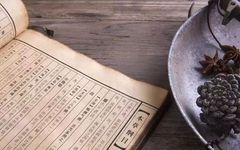Traditional Chinese Medicine (TCM) expert shares health knowledge with you
Click below to follow for free ↓↓↓
Many middle-aged and elderly people realize that with age, they may have kidney deficiency and need to replenish it, but they do not know how to choose the right medicine. For example, some people clearly have Kidney Yin Deficiency but take the kidney tonifying medicine Yougui Wan (Right Return Pill) recommended by others for Kidney Yang Deficiency, resulting in an even greater imbalance of Yin and Yang, leading to further deficiency and worsening of their condition.

1. The Kidney is the Foundation of Innate Vitality, Not Just the Organ
In TCM, the Kidney is considered the foundation of innate vitality, where “foundation” refers to the root of life, not merely the organ itself. Eating kidney meat to tonify the kidneys is a misconception! Compared to Western medicine’s view of the kidneys, TCM’s concept of the Kidney encompasses not only urinary function but also governs reproduction, fluid metabolism, growth and development, and is involved in bone health, respiration, immunity, hematopoiesis, and digestion.
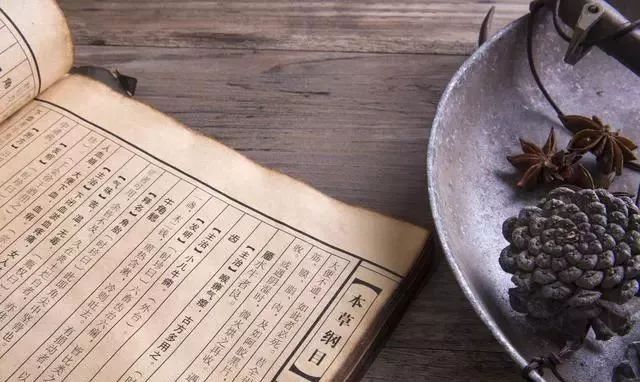
2. What Does It Mean That the Kidney Stores Essence?
TCM believes that the Kidney stores essence (the essence and energy of the Kidney are closely related to development and reproductive capacity), governs water (overseeing the body’s fluid metabolism and regulating the balance of fluids), governs the intake of Qi (the Kidney receives the Qi inhaled by the lungs and regulates breathing), governs bones (the growth, development, and repair of bones rely on Kidney essence; teeth are considered extensions of bones; sufficient Kidney essence nourishes the bone marrow, while deficiency leads to brittle bones, delayed closure of fontanelles in children, slow tooth growth, poor development, and in adults, loose teeth or premature loss), governs the generation of marrow that fills the brain (the brain is the sea of marrow, and brain marrow relies on Kidney essence; insufficient Kidney essence leads to inadequate brain marrow, resulting in dizziness, tinnitus, forgetfulness, and hearing loss), connects to the brain and opens to the ears (the essence of the Kidney ascends to the ears, and the auditory function depends on the nourishment of Kidney essence) and governs the anterior and posterior Yin (the formation, storage, and excretion of urine depend on the Kidney’s Qi transformation, and the regulation of bowel movements is also closely related to the Kidney’s Qi transformation), with its manifestation in hair (essence and blood nourish each other; when essence is abundant, blood is vigorous. Hair is an extension of blood, and its nourishment relies on blood; the vitality of hair is rooted in the Kidney), thus, when the Kidney is deficient, teeth are prone to fall out, leading to oral inflammation and hair loss.
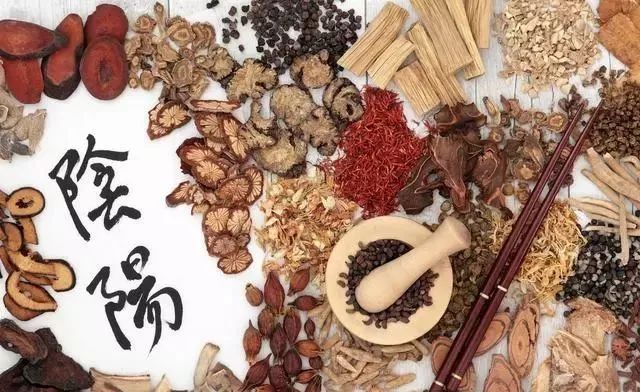
3. Differentiating Between Kidney Yin and Yang Deficiency
1. Kidney pathology generally refers to Kidney deficiency. Kidney deficiency can be further divided into Kidney Qi deficiency, Kidney Yang deficiency, Kidney not receiving Qi, and Kidney Yin (essence) deficiency, usually broadly classified into Kidney Yang deficiency and Kidney Yin deficiency.
2. Kidney Yang deficiency may present with fatigue, pale complexion, dizziness, tinnitus, coldness in the lower back and knees, cold limbs, preference for warmth and aversion to cold, difficulty urinating, male impotence, premature ejaculation, and female infertility due to cold in the uterus;
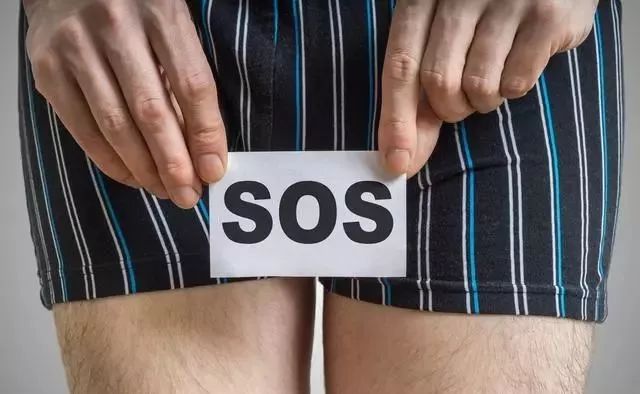
3. Kidney Yin deficiency may lead to emaciation, dizziness, forgetfulness, insomnia, deafness, tinnitus, weakness in the lower back and legs, night sweats, five hearts heat, dry mouth and throat, and in men, reduced sperm count, nocturnal emissions, and premature ejaculation, while in women, amenorrhea.
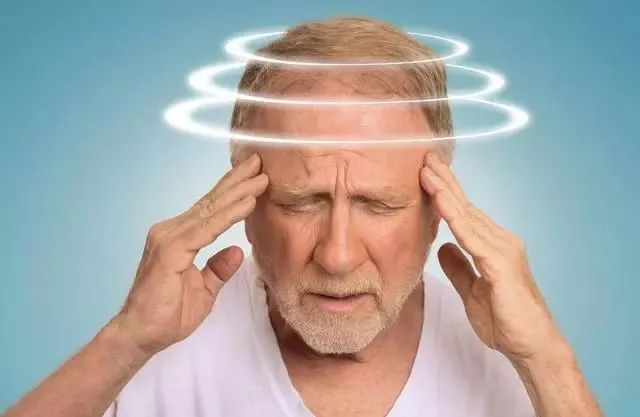
4. Kidney Yin and Yang often influence each other during pathological changes; Yin damage can affect Yang, and Yang damage can affect Yin.
4. How to Differentiate and Use Medicine for Kidney Deficiency
Kidney diseases are mostly deficiency syndromes. According to the principle of “deficiency should be supplemented,” the focus should be on tonifying the Kidney, but it is necessary to differentiate between Kidney Yin deficiency and Kidney Yang deficiency, and to adopt methods to tonify Kidney Yin or warm and tonify Kidney Yang accordingly, while also understanding the interdependence of Yin and Yang.
1. Tonifying the Kidney Requires Balancing Yin and Yang
According to Ming Dynasty physician Zhang Jingyue, the two Kidneys are the Mingmen (Gate of Life), which governs the water and fire of the two Kidneys’ Yin and Yang. “Those who are good at tonifying Yang must seek Yang within Yin, so that Yang receives assistance from Yin, and the transformation is endless; those who are good at tonifying Yin must seek Yin within Yang, so that Yin receives assistance from Yang, and the source is inexhaustible.” Therefore, in TCM, for those with Kidney Yin deficiency, it is advisable to use sweet and cool tonics to nourish the Kidney, allowing the deficiency fire to descend and the Yin to recover, while avoiding acrid and drying substances that consume fluids and bitter cold substances that harm Yin; for those with Kidney Yang deficiency, it is advisable to use sweet and warm tonics to assist Yang, allowing the cold to disperse and Yang to be invigorated, while avoiding cool and moistening substances and acrid dispersing substances.
2. The treatment methods for Kidney disease are as follows:
For Kidney Qi deficiency, the treatment should focus on tonifying the Kidney and benefiting Qi, commonly using the formula Dabu Yuan Jian (Great Tonic Decoction) with modifications; for Kidney not receiving Qi, the treatment should focus on consolidating the Kidney and capturing essence, tonifying the Kidney and benefiting Qi, commonly using Ren Shen Hu Tao Tang (Ginseng and Walnut Decoction) or Shen He San (Ginseng and Clam Powder) with modifications; for Kidney Yin deficiency, the treatment should focus on nourishing Kidney Yin, commonly using Liu Wei Di Huang Wan (Six Flavor Rehmannia Pill) or Zuo Gui Wan (Left Return Pill) with modifications; for Kidney deficiency with water retention, the treatment should focus on warming the Kidney and promoting urination, commonly using Zhen Wu Tang (True Warrior Decoction) or Ji Sheng Shen Qi Wan (Kidney Qi Pill) with modifications; for Kidney deficiency with excess fire, the treatment should focus on nourishing the Kidney (Yin) and descending fire, commonly using Zhi Bai Di Huang Wan (Anemarrhena and Phellodendron Pill) or Dabu Yin Wan (Great Yin Tonic Pill) with modifications; for Kidney Yang deficiency, the treatment should focus on warming and tonifying Kidney Yang, commonly using Jin Gui Shen Qi Wan (Golden Cabinet Kidney Qi Pill) or You Gui Wan (Right Return Pill) with modifications.
Jin Gui Shen Qi Wan (also known as Ba Wei Di Huang Wan, Eight Flavor Rehmannia Pill) is a formula from the Han Dynasty physician Zhang Zhongjing’s “Jin Gui Yao Lue” for treating Kidney Yang deficiency, composed of eight herbs: Gan Di Huang (Rehmannia Root), Shan Zhu Yu (Cornus Fruit, wine-baked), Shan Yao (Chinese Yam), Ze Xie (Alisma), Dan Pi (Moutan Root), Fu Ling (Poria), Gui Zhi (Cinnamon Twig), and Fu Zi (Aconite, wine-baked). It warms and tonifies Kidney Yang, transforms Qi, and promotes water metabolism. It is used for symptoms of Kidney deficiency with edema, weakness in the lower back and knees, difficulty urinating, and aversion to cold.
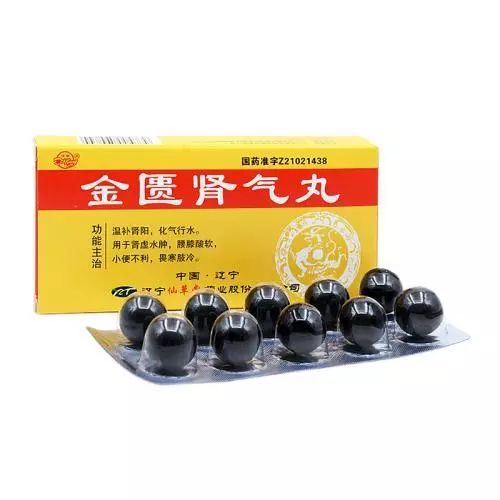
Liu Wei Di Huang Wan is mentioned in the works of Song Dynasty physician and pediatric expert Qian Yi (Zhongyang) in “Pediatric Medicine” for treating Kidney Yin deficiency, composed of six herbs: Shu Di Huang (Rehmannia Root), Zhi Shan Zhu Yu (Cornus Fruit), Shan Yao (Chinese Yam), Ze Xie (Alisma), Dan Pi (Moutan Root), and Fu Ling (Poria), originally called Di Huang Yuan. Qian Yi created Liu Wei Di Huang Wan as a pediatric medicine for treating children’s five delays and five soft conditions caused by insufficient liver and kidney Yin essence, such as delayed closure of fontanelles (delayed skull closure), delayed speech, delayed walking, and weakness in the limbs (children with congenital deficiencies and slow development). In this formula, Shu Di Huang nourishes Yin and tonifies the Kidney (tonifying Kidney Yin), filling essence and generating marrow as the main herb; Zhi Shan Zhu Yu is sour and warm, nourishing the liver and kidney while astringing essence and stopping sweating (nourishing both liver and kidney); Shan Yao is sweet and neutral, tonifying the spleen and benefiting Qi while solidifying the Kidney and benefiting essence (through strengthening the spleen to tonify the acquired essence), serving as auxiliary herbs. The first three herbs nourish all three Yin (Kidney Yin, Liver Yin, Spleen Yin), primarily tonifying Kidney Yin and addressing the root cause.Ze Xie drains the Kidney, promotes urination, and clears turbidity, preventing Shu Di Huang from being overly cloying; Dan Pi clears liver fire, counteracting the astringent effect of Shan Zhu Yu; Fu Ling drains water and promotes urination, helping Shan Yao strengthen the spleen and stomach. The latter three herbs drain dampness and turbidity, balancing excess and serving as adjuncts to treat the symptoms. The entire formula combines tonifying deficiency (three tonics) with expelling evil (three drains), complementing each other, with the tonics being more abundant than the drains, primarily nourishing Yin and tonifying the Kidney, used for Kidney Yin deficiency, dizziness, tinnitus, weakness in the lower back and knees, tidal fever, night sweats, and thirst.
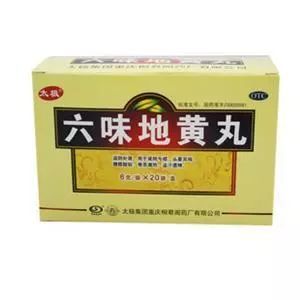
5. Modifications of Liu Wei Di Huang Wan for Treating Kidney Deficiency Series
TCM emphasizes differentiation and treatment based on syndrome. The Liu Wei Di Huang formula can be modified according to symptoms, gradually forming a series of Liu Wei Di Huang Wan, such as:
1. Zhi Bai Di Huang Wan (adding Zhi Mu and Huang Bai), nourishes Yin and descends fire, suitable for Yin deficiency with excess fire, bone steaming, night sweats, dry mouth and throat, tinnitus, nocturnal emissions, and short, red urine;

2. Gui Fu Di Huang Wan (also known as Jin Gui Shen Qi Wan, adding Rou Gui and Zhi Fu Zi), warms and tonifies Kidney Yang, suitable for Kidney Yang deficiency, coldness in the lower back and knees, edema in the limbs, difficulty urinating or frequent urination, phlegm-damp cough, and thirst;
3. Qi Ju Di Huang Wan (adding Gou Qi Zi and Ju Hua), nourishes the Kidney and Liver, used for treating dizziness, tinnitus, dry eyes, photophobia, and blurred vision caused by Liver and Kidney Yin deficiency;
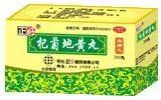
4. Ming Mu Di Huang Wan (adding Gou Qi Zi, Ju Hua, Zhi Jie Ming, and nourishing blood herbs like Dang Gui and Bai Shao), nourishes the Kidney, Liver, and brightens the eyes, used for Liver and Kidney Yin deficiency, dry eyes, photophobia, blurred vision, and tearing in the wind;
5. Mai Wei Di Huang Wan (adding Mai Dong and Wu Wei Zi), nourishes the Kidney and Lung, used for Lung and Kidney Yin deficiency presenting with tidal fever, night sweats, dry throat, dizziness, tinnitus, weakness in the lower back and knees, and redness in the cheeks, beneficial for Type 2 diabetes with Yin deficiency;

6. Gui Shao Di Huang Wan (adding Dang Gui and Bai Shao to nourish blood and soften the liver), nourishes the Liver and Kidney, replenishes Yin blood, and clears deficiency heat. It is used for Liver and Kidney deficiency, blood deficiency, dizziness, tinnitus, dry throat, afternoon tidal fever, lower back and leg pain, and heel pain, showing significant efficacy for blood deficiency dizziness and women’s menorrhagia;
7. Qi Wei Du Qi Wan (adding Wu Wei Zi), tonifies the Kidney, captures Qi, and astringes essence to stop nocturnal emissions, used for treating shortness of breath, chest tightness, chronic cough, shortness of breath, dry throat, nocturnal emissions, night sweats, and frequent urination due to Kidney not receiving Qi;
8. Ji Sheng Shen Qi Wan (adding Niu Xi and Che Qian Zi to Jin Gui Shen Qi Wan), warms the Kidney, transforms Qi, and promotes urination to reduce edema. It is used for Kidney Yang deficiency and internal water retention leading to Kidney deficiency edema, heavy lower back and knees, difficulty urinating, and phlegm-damp cough.
9. Contraindications for Medication: With modern pharmaceutical technology, the Liu Wei Di Huang series is available in various forms such as pills (large honey pills, small honey pills, water honey pills, concentrated pills), granules, tablets, capsules, oral liquids, and pastes. When using these, one should avoid spicy foods, and it is not advisable to take cold medicine during the medication period. If symptoms such as loss of appetite, stomach discomfort, loose stools, or abdominal pain occur during medication, one should seek medical attention promptly. Some formulations (for Yang deficiency) also require abstaining from sexual activity.
6. How to Use Zuo Gui Wan and You Gui Wan for Treating Kidney Deficiency
1. Origins of Zuo Gui Wan and You Gui Wan
Zuo Gui Wan and You Gui Wan were formulated by Ming Dynasty physician Zhang Jingyue, derived from Jin Gui Shen Qi Wan and Liu Wei Di Huang Wan, based on the pulse theory that “the original Yin of the Kidney is reflected in the left wrist; the original Yang of the Kidney is reflected in the right wrist.” The left wrist pulse indicates Kidney Yin (water) signs, while the right wrist pulse indicates Kidney Yang (fire) signs. Thus, the formula for tonifying Kidney Yin was named Zuo Gui, and the formula for tonifying Kidney Yang was named You Gui, embodying the interdependence of Yin and Yang and the continuous cycle of life.Basic herbs in the formulas:Shu Di Huang (Rehmannia Root), Shan Yao (Chinese Yam), Shan Zhu Yu (Cornus Fruit, nourishing Yin and tonifying the Kidney, astringing essence and stopping sweating), Gou Qi Zi (nourishing the Liver and Kidney, benefiting essence and blood), Tu Si Zi (nourishing the Liver and Kidney, strengthening the lower back and knees, and strengthening tendons and bones), and Jiao (antler glue, assisting Yang), with a sweet and warm nature, making it an excellent formula for replenishing essence and tonifying the Kidney.
2. Zuo Gui Wan (for Kidney Yin Deficiency)
Zuo Gui Wan adds Gui Ban Jiao (to nourish Yin, combining the two jiao for a strong replenishment of essence and blood, balancing Yin and Yang), and Chuan Niu Xi (to nourish the Liver and Kidney, strengthen the lower back and knees, and strengthen tendons and bones), focusing on nourishing Yin and tonifying the Kidney, filling essence and benefiting marrow. The addition of Yang tonics among Yin tonics can achieve the effect of “seeking Yin within Yang.” It primarily addresses true Yin deficiency.It is indicated for men with low sperm count and infertility, impotence, nocturnal emissions, and premature ejaculation, as well as women with menstrual irregularities, amenorrhea, or reproductive system disorders.Zuo Gui Wan can also be used to treat menopausal syndrome as a non-hormonal herbal therapy.
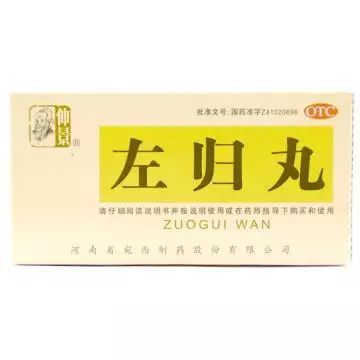
3. You Gui Wan (for Kidney Yang Deficiency)
You Gui Wan adds Rou Gui and Shu Fu Zi (both warm the Kidney Yang and warm the lower source), Du Zhong (tonifying Kidney Yang and benefiting essence and blood), and Dang Gui, warming and tonifying Kidney Yang, filling essence and benefiting marrow to stop nocturnal emissions. The formula combines Yang tonics with Yin tonics (Shu Di Huang, Shan Yao, Shan Zhu Yu, Dang Gui, and Gou Qi Zi nourish Kidney Yin and support Liver blood), achieving the effect of “seeking Yang within Yin.” It is indicated for insufficient original Yang and cold essence.Symptoms include chronic illness leading to fatigue, aversion to cold, impotence, nocturnal emissions, or weakness in the lower back and knees, with edema in the lower limbs, or reduced appetite and loose stools.
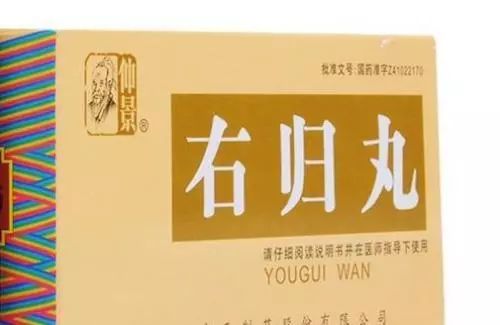
7. Principles for Selecting Kidney Tonifying Patent Medicines
1. How to Choose Between Liu Wei Di Huang Wan and Zuo Gui Wan for Treating Kidney Yin Deficiency
Liu Wei Di Huang Wan and Zuo Gui Wan are both formulas for tonifying Kidney Yin deficiency; the former strengthens water and treats fire, while the latter nourishes Yin and contains Yang. For Kidney Yin deficiency, symptoms may include dizziness, weakness in the lower back and knees, tinnitus, forgetfulness, and frequent night sweats or nocturnal emissions. If there are signs of deficiency fire, Liu Wei Di Huang Wan is recommended; if there is no excess fire and the body is gradually weakening, with low spirits and dull eyes, and incontinence, Zuo Gui Wan is recommended to nourish Yin and replenish essence.
2. How to Choose Between You Gui Wan and Jin Gui Shen Qi Wan for Treating Kidney Yang Deficiency
You Gui Wan and Jin Gui Shen Qi Wan are both formulas for tonifying Yang. Jin Gui Shen Qi Wan contains both tonifying and draining properties, capable of transforming Qi and promoting water metabolism, suitable for Kidney Yang deficiency with water retention symptoms, such as facial edema, difficulty urinating or frequent urination, phlegm-damp cough, and infertility due to cold in the uterus; You Gui Wan focuses on tonifying Yang while also nourishing essence and blood, purely tonifying without draining, suitable for Kidney Yang deficiency with insufficient essence, such as impotence, nocturnal emissions, incontinence, or chronic diarrhea and abdominal pain due to insufficient fire.
3. Other Kidney Tonifying Patent Medicines
There are many other herbs and foods that tonify the Kidney, such as Nu Zhen Zi (Ligustrum Fruit), Shu Di Huang (Rehmannia Root), Huang Jing (Polygonatum), Hei Dou (Black Soybean), and He Tao Ren (Walnut). In addition to the previously mentioned patent medicines, there are also He Che Da Zao Wan, Da Bu Yin Wan, Er Zhi Wan, Si Shen Wan, Qing E Wan, Wu Zi Yan Zong Wan, Gui Lu Bu Shen Wan, etc., all of which require understanding their effects and indications, and should be selected rationally based on individual differentiation.
This article is for reference only. For specific medication, please consult a TCM hospital. It is important to maintain a balanced diet, exercise regularly, enhance immunity, and promote health.
Note: Some text and image resources in this article are sourced from the internet. The purpose of reprinting this article is to convey more information. If there are any errors in source attribution or infringement of your legal rights, please notify us immediately, and we will delete it promptly and apologize to you.Previous Highlights: Does Liver Fire Easily Cause Irritability? What is Liver Fire, and which Chinese herbs can be used? Understand how to deal with pustular acne? 15 commonly used topical medications are available for selection, worth saving. What to take for Spleen and Lung Qi Deficiency? Recommended four patent medicinesDirector Zhao popularizes health and wellness knowledge
Click below to follow for free ↓↓↓
Editor shares good articles with friends
1. Unclog blood vessels, two Chinese herbs boiled in water, invigorate blood circulation and prevent heart and brain infarction
2. If you experience any of the four situations while taking Atorvastatin and Aspirin for a long time, stop taking them immediately; do not take chances.
3. Nine effective insomnia remedies that work immediately, the best medications for sleep disorders
Like is a form of encouragement Share to spread joy

